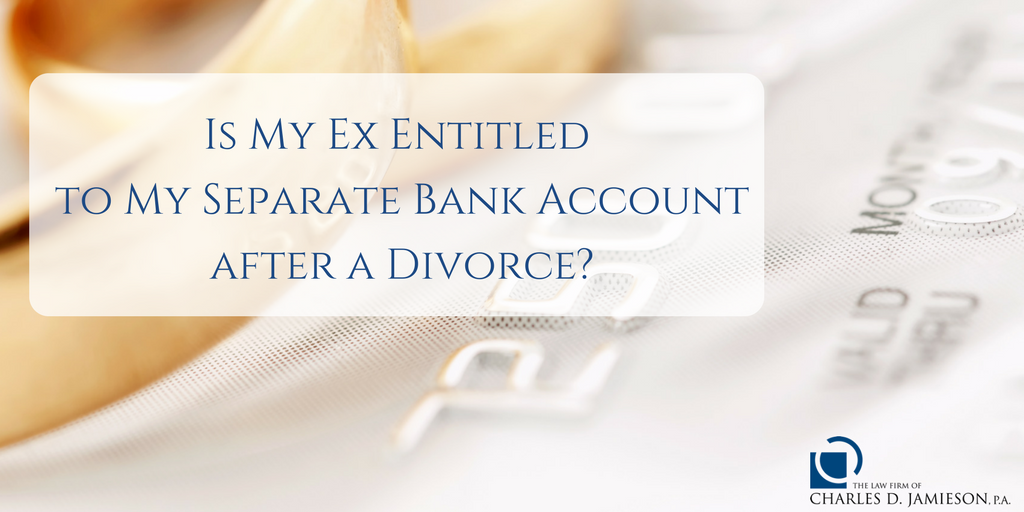When it comes to divorce, the name on a bank account doesn’t necessarily dictate who will receive its contents during the division of property. It is the job of the divorce court judge to determine whether the funds are joint property or one spouse’s separate property by applying state law.
(Note: In contrast to community property states, Florida is an equitable distribution jurisdiction. This means that the judge starts with a presumption of a 50/50 split and then considers a variety of exceptions in considering a different division (60/40, 70/30, etc.).
Is My Ex Entitled to My Separare Bank Account?
Marital or joint property, property which is acquired by either spouse during the marriage, is typically divisible by the court. Separate property, property that one owned before the marriage or obtained by inheritance or a gift from someone other than your spouse, is not divisible during a divorce. Therefore, the source of the money in the account determines whether property is considered to be marital or non-marital.
That said, commingling could cloud the issue. If you take separate property and mix it in with marital property, the non-marital property may lose its status as separate property as it becomes indistinguishable from the marital funds in the account. If you assert that a particular item is separate non-marital property, the court may require you to prove that fact by your tracing the property back to its original source with detailed records that include deposit and withdrawal slips, bank statements, etc.
Ways to avoid commingling funds:
- Address the issue before getting married. Consult with a divorce lawyer before getting married to learn more about what you can do to protect yourself during the marriage. Alternatively, spell out in a prenuptial agreement what will and will not be considered marital assets in the event of a divorce.
- Don’t utilize separate property to pay down marital debt. For example: If your parents gift you a substantial amount of money, don’t use it to pay down credit card debt or the mortgage on your home. The funds would then become marital property.
- Keep a separate account in addition to a joint account. Deposit only funds you earn during the marriage into the joint account. Deposit any funds you owned prior to the marriage, and any interest that you earn on those funds into a separate account in only your name. If you would like to make a purchase that will remain separate property, make the purchase with funds out of your separate account and keep records.
- Getting what is rightfully yours in a divorce requires more than just having your name on an account or piece of property. Be sure to consult with an experienced divorce lawyer regarding protection of your assets and marital versus separate property prior to getting married or as soon as you have made the decision to divorce.
Board Certified Marital and Family Law Attorney Charles D. Jamieson understands that divorce is an extremely sensitive and important issue. Thanks to extensive education, training, and experience in mediation and collaborative divorce and a focus on open communication, Attorney Jamieson adeptly addresses the complex issues surrounding divorce while delivering excellent personal service. To discuss financial issues related to divorce, or to determine if collaborative divorce is appropriate for your case, please contact The Law Firm of Charles D. Jamieson, P.A. online or call 561-478-0312 to schedule a consultation.



